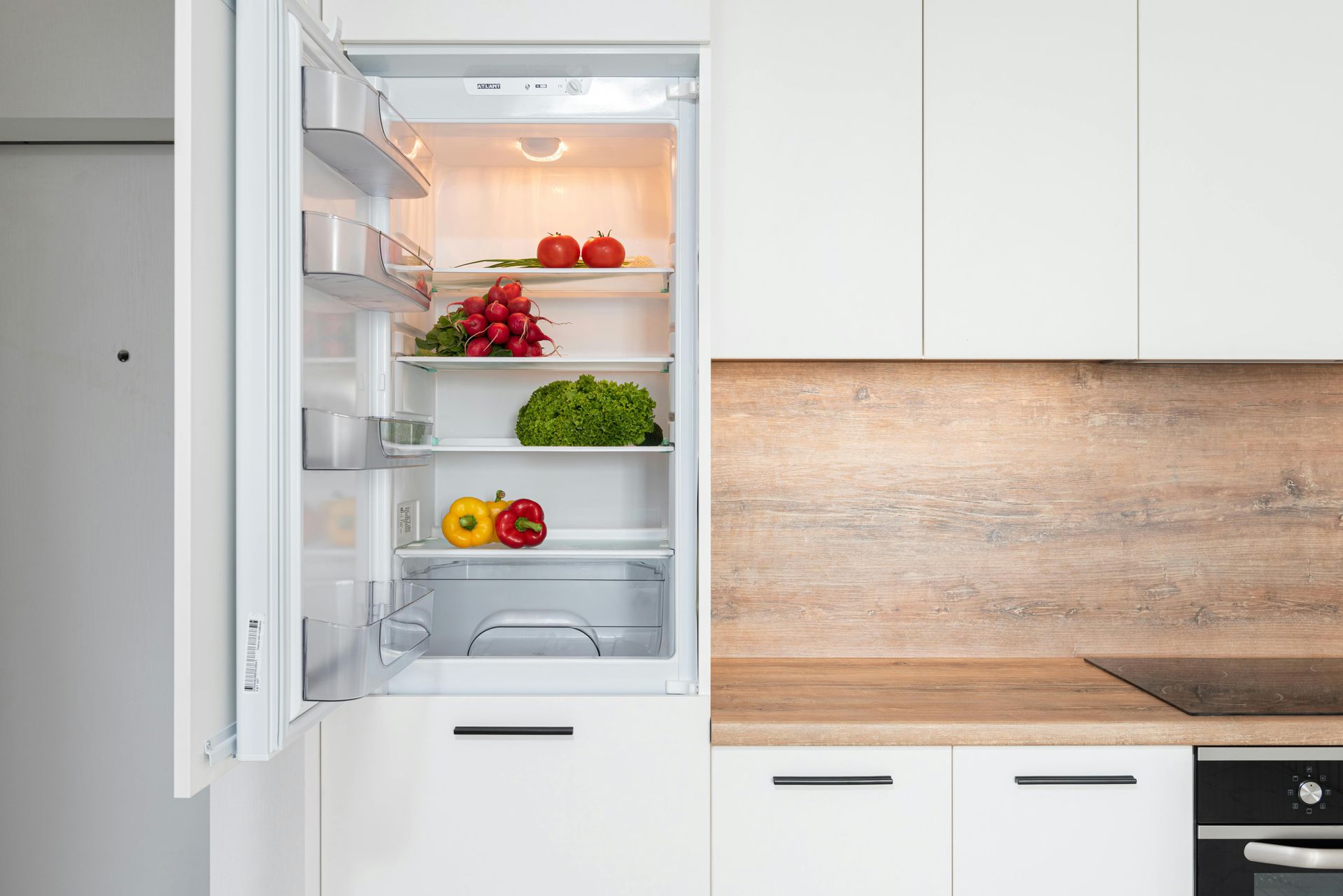How to Prevent Condensation in Refrigerators: Practical Tips for Homeowners
Moisture in your fridge may seem harmless, but persistent condensation in a refrigerator can cause more than just a wet mess.
Excess moisture can lead to spoiled food, mold buildup, water leaks, and even damaged internal components if not addressed properly. As a homeowner, understanding the causes and solutions can help you avoid unnecessary repairs—and save your food and fridge from long-term damage.
In this guide, we’ll explain what causes condensation, how to prevent fridge condensation using simple storage and cleaning practices, and when to
seek professional help. Whether you're dealing with foggy shelves or pooling water, these fridge maintenance tips will help you maintain optimal performance and food safety.

What Causes Condensation in Refrigerators?
Condensation is the result of warm, humid air meeting the cooler surfaces inside your refrigerator. This interaction causes moisture to accumulate, especially on glass shelves, walls, and door compartments.
Common causes of condensation include:
- Leaving the fridge door open too long
- Storing hot or uncovered food
- Damaged or dirty door seals
- Improper temperature settings
- Blocked air vents or overloaded shelves
- High household humidity levels
While occasional moisture isn’t unusual, consistent or excessive condensation signals that your fridge is not working as efficiently as it should.
8 Practical Tips to Prevent Fridge Condensation
Here are proven ways to reduce moisture inside your refrigerator and keep it running efficiently.
1. Check and Clean the Door Gasket Regularly
The rubber seal around your fridge door (called the gasket) is crucial in keeping warm air out. A damaged or dirty gasket lets warm air seep in, leading to increased moisture and poor cooling performance.
How to maintain it:
- Clean the gasket monthly with mild soapy water
- Check for cracks, mold, or looseness
- Close a dollar bill in the door—if it slides out easily, the seal may be failing
If your gasket is worn or torn, it’s time for a replacement.
2. Keep Your Refrigerator Properly Organized
Fridge organization isn't just for aesthetics—it promotes proper airflow. When shelves are overfilled, air can't circulate, causing uneven cooling and potential condensation in certain zones.
Storage tips:
- Avoid packing items tightly against the walls
- Don’t block air vents
- Store items in clearly labeled bins to maximize space and airflow
- Use open-weave containers to allow cold air to pass through
3. Store Food in Covered Containers
Hot or uncovered foods release steam as they cool. That steam becomes trapped and forms condensation on nearby surfaces.
Tips for proper food storage:
- Let leftovers cool to room temperature before refrigerating
- Always use airtight containers
- Avoid storing items uncovered or in paper packaging that holds moisture
This not only controls humidity but also prevents food odor transfer.
4. Set the Right Temperature
Your refrigerator should be set between 37°F and 40°F (3°C–4°C). Any higher and it won't keep food safe; any lower and it may cause freezing or unnecessary moisture buildup.
Use a refrigerator thermometer to verify your internal temperature if your appliance doesn’t display it digitally. Inconsistent temperatures often lead to condensation in refrigerators and can cause food spoilage.
5. Avoid Frequent or Prolonged Door Openings
Every time the refrigerator door is opened, warm air enters. Repeated or prolonged exposure allows moisture to settle inside, especially in warmer climates.
What to do:
- Minimize time spent with the fridge door open
- Decide what you need before opening the fridge
- Teach kids to avoid holding the door open unnecessarily
These small habits can make a big difference in keeping humidity under control.
6. Use a Dehumidifier or Moisture Absorbers
If you live in a high-humidity environment, your fridge may struggle with excess moisture. Use natural humidity control methods such as:
- Baking soda placed in an open container
- Activated charcoal or silica gel packets inside drawers
- Commercial moisture absorbers designed for refrigerators
These solutions help reduce internal condensation and neutralize odors at the same time.
7. Clean Condensation Drains and Pans
Most refrigerators have a built-in drainage system to collect condensation and route it to an evaporator tray. When clogged, these can overflow and cause water pooling inside the fridge.
Maintenance tip:
- Locate the drain hole (usually at the back inside wall)
- Clean it using warm water or a turkey baster to flush debris
- Check the drip pan beneath the fridge for mold or overflow
Regular maintenance of the drain system keeps condensation at bay and prevents mildew.
8. Schedule Routine Fridge Maintenance
Preventive fridge maintenance helps you spot potential issues before they become bigger problems. A technician can inspect:
- Cooling coils and fans
- Door seals
- Temperature calibration
- Internal vents and drainage
This is especially helpful if you notice persistent condensation despite following the above steps. Regular servicing extends your fridge’s lifespan and ensures optimal performance.
When to Call for Professional Help
If you’ve tried the above tips and still notice excessive condensation in your refrigerator, it may be time to consult an expert. You could be dealing with:
- A malfunctioning thermostat
- Internal sensor failures
- Blocked or broken air ducts
- A faulty defrost system
- Compressor or fan issues
Trying to DIY complex repairs can risk further damage. That’s where an appliance service provider like Twin City Appliance can step in to help.
Keep Your Fridge in Top Shape with Twin City Appliance
At Twin City Appliance, we know how frustrating it is to deal with water buildup and spoiled food due to persistent condensation. Our experienced technicians are trained to inspect, repair, and maintain all major refrigerator brands—and we pride ourselves on quick service, honest advice, and long-term solutions.
Whether you need gasket replacement, thermostat repair, or a full system diagnostic, our team can help prevent fridge condensation before it becomes a major problem.
Call us today to schedule a service visit and enjoy a fridge that runs cleaner, colder, and drier—just the way it should.
